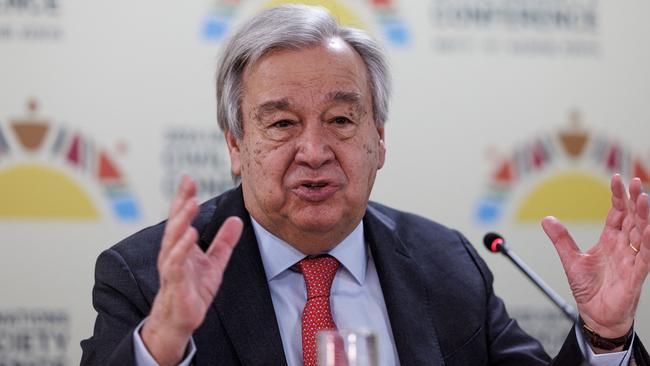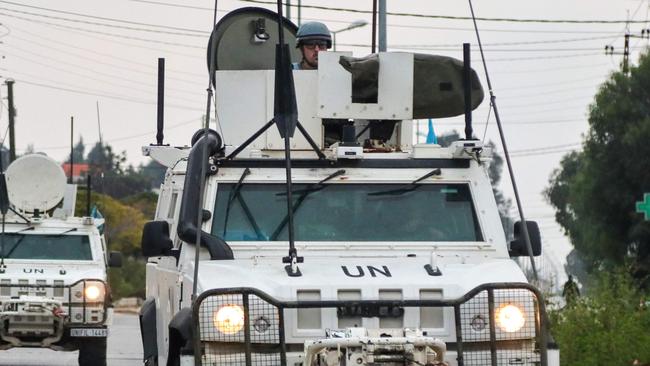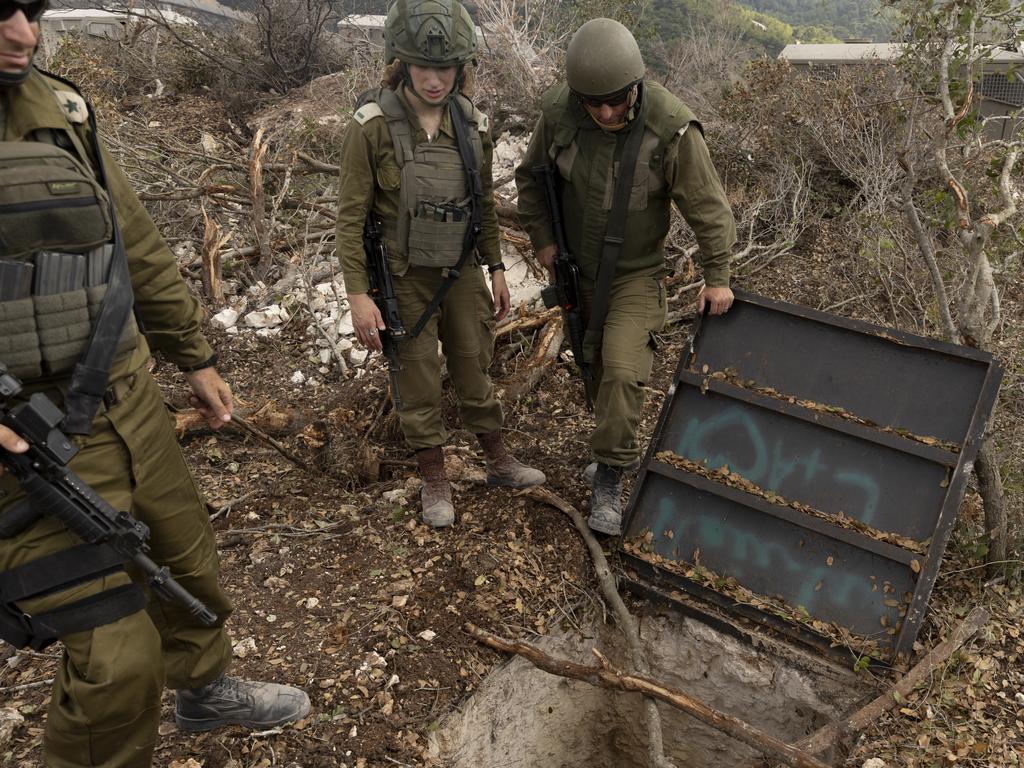
They have never done any good there and their continued presence is dangerous to themselves, helpful to Hezbollah and prolongs the conflict by making it harder for Israel to clear out the Hezbollah infrastructure from its northern border area.
In the last couple of days the Albanese government has done and said a few things that are helpful on the Middle East and indicate a slightly better moral compass. The government has imposed individual sanctions on a number of Iranians associated with Tehran’s recent missile attack on Israel.
These sanctions are entirely symbolic. These senior Iranians will hardly be expecting to do any significant business in Australia. But they are good symbolism. For once the government is criticising the bad guys rather than criticising our friends.
Similarly, it’s perfectly reasonable for the government to issue a travel advisory against travelling to Israel right now.
That’s no criticism of Israel. But it is, at least implicitly, a recognition of the depth and range of the threat which Israel faces from its coalition of enemies, the terrorists and extremists, most of whom are doing the bidding of Iran.
Getting the UN peacekeepers out of southern Lebanon is elementary common sense, which means, of course, the UN is very unlikely to implement it without some outside pushing. If the Albanese government is really motivated by moral principle, plus a desire to be of some practical help, putting public pressure on the UN to take this obvious step would be the right thing to do.
The United Nations Interim Force in Lebanon was deployed nearly 20 years ago to observe the implementation of a UN resolution which had two critical components. One was that Hezbollah was to withdraw behind the Litani River, some 30km north of Israel’s border.
The other was that Hezbollah was to be disarmed, with the only formal security role being carried out by the Lebanese national army.
Needless to say, neither of those two provisions has ever been implemented. If they had been observed, not only would Hezbollah’s threat to Israel have been removed, but also Hezbollah’s ongoing intimidation and destruction in Lebanon itself.
And instead of today suffering the effects of Israel’s retaliation against Hezbollah, Lebanon would be at peace and the natural genius of its people would be working to make it prosperous and safe.
The failure of this UN resolution is not the fault of the peacekeepers. Over the years I’ve met some of the UN peacekeepers on Israel’s northern borders and they strike me as good people doing their best in an impossible situation.
Naturally they make no effort to enforce the UN resolution on Hezbollah, the implementation of which they were sent there to observe and guarantee.
Nor, and this is no fundamental criticism of them, do they make any other significant contribution.
Over the last year, the UN peacekeepers were unable to limit or deflect in any way Hezbollah from firing 9000 missiles at Israel.
Nor were the UN peacekeepers able to detect, report or stop Hezbollah building a series of extensive tunnel networks right on Israel’s border, many of them near to UNIFIL establishments, which tunnel networks were to be used to facilitate an October 7 style Hezbollah massacre of Israeli civilians.
US Secretary of Defence Lloyd Austin, and the US State Department in subsequent statements, have explicitly supported Israel’s actions in eradicating this terrorist infrastructure right on its border.

That US position may be inconsistent with more general calls for a ceasefire, or the US may be exempting such localised actions from the ceasefire calls. The Albanese government, unlike the Americans, has never even acknowledged Israel’s need to undertake this clearing task.
Hezbollah being Hezbollah, it has naturally located as much of this terror infrastructure as it can right next to UNIFIL posts and headquarters. That’s because the Israelis, quite rightly, are not meant to fire on, or even be near, a UN post.
So Israeli Prime Minister Benjamin Netanyahu’s request of UN Secretary-General Antonio Guterres that he take the UNIFIL peacekeepers out of southern Lebanon is reasonable, sensible and compelling. Naturally, Guterres, the most low profile, ineffective and generally hopeless UN secretary-general in decades, and a long-term enemy of Israel, won’t hear a bar of it.
Incidentally, Kevin Rudd would have been an infinitely better, more effective, secretary-general than Guterres.
UNIFIL forces are acting as human shields for Hezbollah in a region where Hezbollah has no business to be located, much less to be concentrating its resources for attacks on Israel.
For its part, Israel has no desire to harm, intimidate, threaten or even inconvenience UNIFIL forces. But because Guterres and the UN apparently regard their divine mission as being to cause harm to Israel, they won’t move the UNIFIL forces out of their existing posts.
The UNIFIL forces are not doing a speck of good in southern Lebanon. The only practical consequence of their presence is to make Israel’s task in clearing Hezbollah out from the area, and destroying its terror infrastructure, more difficult, and slower. Thus the UN, acting as human shields for Hezbollah, is actively prolonging the conflict. Even by UN standards, this is a bizarre contribution.
The Albanese government is on a comparative roll with a couple of good decisions and statements. It should make one more. Giving some good advice to the UN would be unwelcome to Guterres, and that’s a price Australia should happily pay.






Here’s one thing the Albanese government could do which would be a useful contribution to ending the conflict in the Middle East more quickly: tell the United Nations to remove its alleged peacekeepers from southern Lebanon.